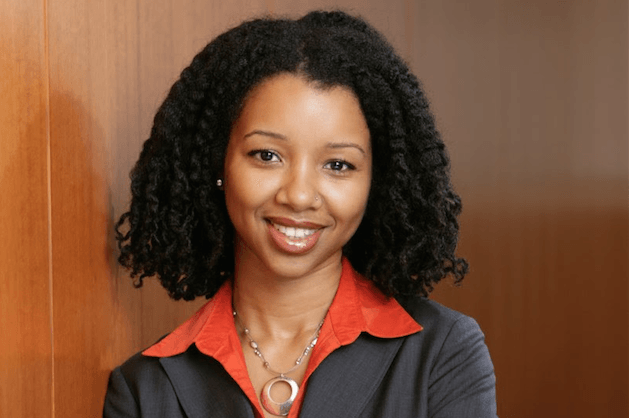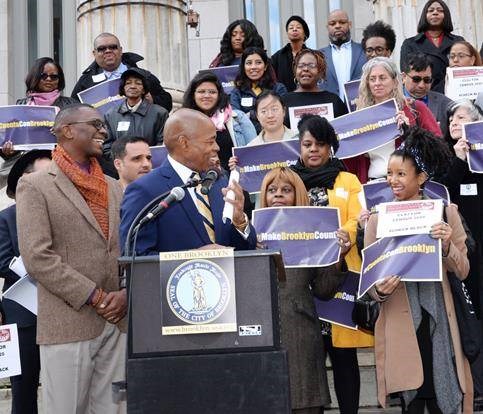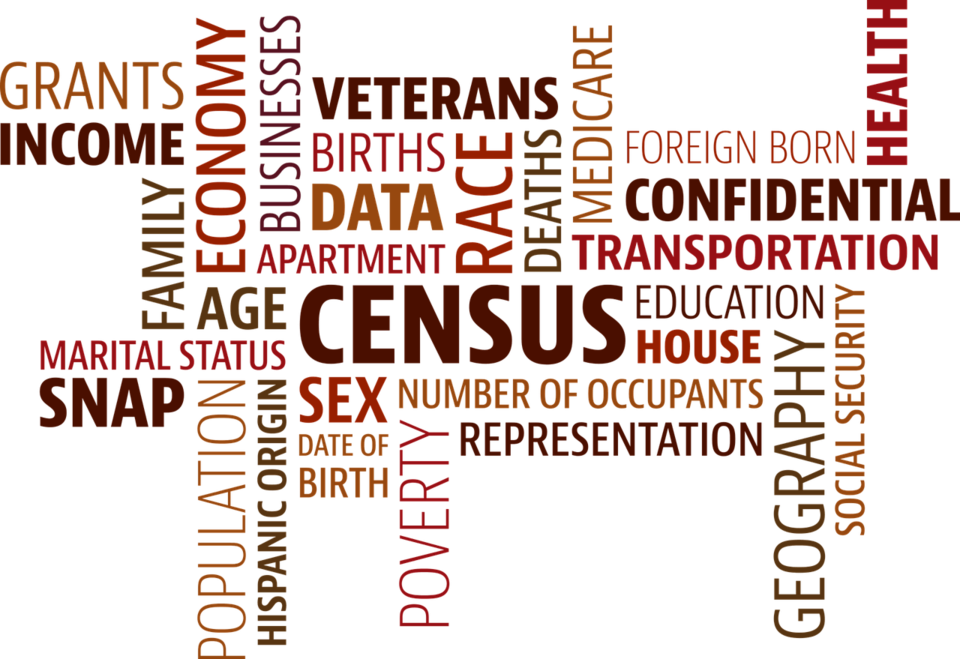Since early 2018, Brooklyn has been all abuzz about the 2020 Census.
The first enumeration of the next Census does not begin until April 1, 2020. So what's so important about this particular Census that has community leaders across Brooklyn so fired up?
Well, according to research from the City University of New York, Brooklyn is the most difficult county to count in New York State. Also, the current political climate under the Trump Administration already is presenting new challenges for the count, including the addition of a citizenship question. This is the first time since 1965 any such question has been included in the Census. Not only is it a significant break from of the Census guidelines but, also, experts predict it will trigger a dramatic undercount.

Photo: Twitter
BK Reader had the pleasure of sitting down with Lurie Daniel-Favors, a community activist and general counsel at The Center for Law and Social Justice at Medgar Evers College. Daniel-Favors is heading up the new Brooklyn Complete Count Committee (BCCC) for Census 2020, which was formed by Brooklyn Borough President, Eric L. Adams to ensure that every community is accurately counted and represented in 2020.
Find out why Lurie Daniel-Favors is preparing to take off her heels, lace up her sneakers and pound the pavement to get as many Brooklyn residents as possible to answer this 10-question survey-- one that will determine how the government ultimately chooses to spend $800 billion in annual funding.
BK Reader: Why do you feel the Census is so important? I think many people-- particularly communities of color-- historically have viewed the Census with the same skepticism they view voting. Many figure, why divulge all of my personal information to the government only to get nothing in return?
Lurie Daniel-Favors: The Census is designed to give a snapshot of the geography and demographics of a community to the government. And the reason the government needs to know that is because the government is responsible for distributing resources every single year. So when we're talking about health needs, infrastructure, roads; when we're talking about schools, all of these things are funded based upon Census numbers. So one thing we'd like to ask people is to think about your child, who is 7 years old in 2020. Between 2020 and 2030, what needs will that child have educationally? What needs will they have health-wise? What types of after school needs will they have? Everything that your child needs between 7-17, most of that is going to be contributed someway by dollars that are funded through the Census.
BKR: You have two young children. What are you personally thinking about, as far as how they are going to be serviced in the future by the Census information?
LDF: So I live in Bed-Stuy. I have a child in District 16, and I have a child in District 17, both in public school. I'm thinking about the fact that my child needs enough teachers in her building, enough social workers in her building, enough after school activities to service the whole child. But if she lives in a community where parents of small children are not filling out the Census or are not reporting how many children they actually have And if the government gets back a report that there are 100 kids in the community when there are actually 300, then your district will have to take the money they received for 100 kids and make it stretch across 300. What also happens is, because my community is heavily gentrifying, if all of the new gentrifiers who are coming into the community who may not have kids are filling out the Census and the ones who do have kids are not, what's going to happen is that data set is going to say, "There are a whole lot of 20-somethings in Bed-Stuy without children, so we're going to give increased funding for young, single 20-something folks who have no children. Do they need more subways? Do they drive cars? What are their road needs? What are the disability needs? So the Census truly is a survey to determine who lives where and what they need.
BKR: I doubt people are considering healthcare when filling out the Census, because there are no questions on the Census related to health. Can you talk a bit more about the sort of questions that will impact a community's healthcare needs?
LDF: The Center for Disease Control distributes health resource dollars based on census data. Black men across the diaspora have an issue with prostate cancer and Black women with fibroids. It's important to note that children under the age of 4 and African-American men are the least counted. So when the Census is taken and that data set is provided, what happens is that that data is fed into formulas, state and federal regulatory and mandated formulas that say, this is the formula for how much WIC is needed-- how much the state will need, how much the city will need and how much Bed-Stuy or Brownsville or any neighborhood or district will need. It's all numbers-based. So if the numbers don't work in your favor, you don't get the money you need.
Or if few seniors are filling out the Census, then there won't be funding for senior citizen centers. Or the senior centers that are open will get shut down or get less funding, because the government will say, "Hey, there aren't enough seniors in that area to support this amount of funding, so we're going to give less."
BKR: So in other words, underreporting has a huge impact across many public sectors.
LDF: Correct. The other issue is that the Census numbers also determine how many political representatives you get. What happens is if your community underreports, your representative will have to represent way more people than their colleagues upstate. So it puts them in a bind, because they don't have the number or resources to speak for you in the way they need to. Also, if you have one representative representing all these people, when there should be two or three, then you are missing out on two or three votes. Additionally, the next year after the Census, in 2021, there is redistricting where lines are redrawn based on the same erroneous data.
"What happens is if your community underreports, your representative will have to represent way more people than their colleagues upstate. So it puts them in a bind, because they don't have the number or resources to speak for you in the way they need to"
BKR: The Census has been changed this year to give, for the first time ever, people the option to separate race from ethnicity, meaning, for example, if you're Nigerian, you can distinguish that from "Black." What do you feel is behind this sudden switch, particularly since the history of this country is to count anyone with African ancestry as Black?
LDF: This change is a big deal. Let's think about New York City alone: We have Black Americans, Black Haitians, Trinidadians, Jamaicans, Venezuelans, Puerto Ricans; we have black people from everywhere. However, people immigrating here from black communities don't always want to affiliated with Black Americans, knowing the history of this country. If you grew up in an all-black country, it's less about race. But this country deals with race differently. So, many times, people will avoid listing themselves as Black on the Census. This change is going to allow people to have a much more nuanced understanding of how race operates in this society, which is very important. What this change on the system means is that you can be from Trinidad and mark Trinidad, because for a lot of people nationality is more important than race.
One of the things that we're doing at the Center for Law and Social Justice is we're initiating the "Check Black" Campaign, and letting people know that you can write down that you're from Trinidad or Nigeria or Jamaica, and then you'll have another opportunity to check your nationality. But in order for the Census to work for Black people, you have to also check Black. Because that is what is going to unleash the voting rights protections; that's what's going to unleash racial protections; it's going to unleash a lot of things that our community needs but that we don't get when we don't check the racial category. You have to show up as black on the Census. So for all the black people who want to hit "other"-- because you know we all got Indian in our faaa-mily *laughing*-- now you can check your ethnicity also. But you need to also check Black. You need to check blackity blackity black black black. *laughing*
BKR: We're a year and half away. Why has there been a sudden rise in interest now, versus any other decade? What set it off?
LDF: We have to thank Department of Commerce Secretary Wilbur Ross, a Trump appointee, who is essentially doing everything possible to manipulate the Census to trigger an undercount. For decades, the Census has been firm about not asking questions about citizenship. This year, at the very last minute, right before the questions were finalized, Secretary Ross decided to insert a question about citizenship-- in contravention of the past six Census directors; in contravention of the Census' own guidelines and procedures, because the states rely so heavily on the accuracy of their data.
We also are concerned because usually when a question is added, it takes years of study, because they need to understand how the person is going to feel when filling out the question. They didn't do that. This was added at the last minute. And it was done in such a way that violates the Census' own policies and procedures. That let us know that if fear is triggered, it will send a lack of resource distribution and political representation. We are nervous because we've already seen how Trump has been aggressively hostile to immigrant communities and communities of color. So everyone in the advocacy and activist community is doing everything we can to make sure communities of color and immigrant communities do not suffer.

Photo Credit: Erica Sherman/Brooklyn BP's Office
BKR: How can people get involved now. What can people do now?
LDF: They can join or support the "Check Black" Campaign, a project of the The New York City Black Leadership Advisory Coalition for Census 2020. Invite us out to one of your community meetings for ten minutes to speak, or if you have a location where we can set up a booth, let us know. For more information, go to CLSJ.org/blackcensusjustice.




